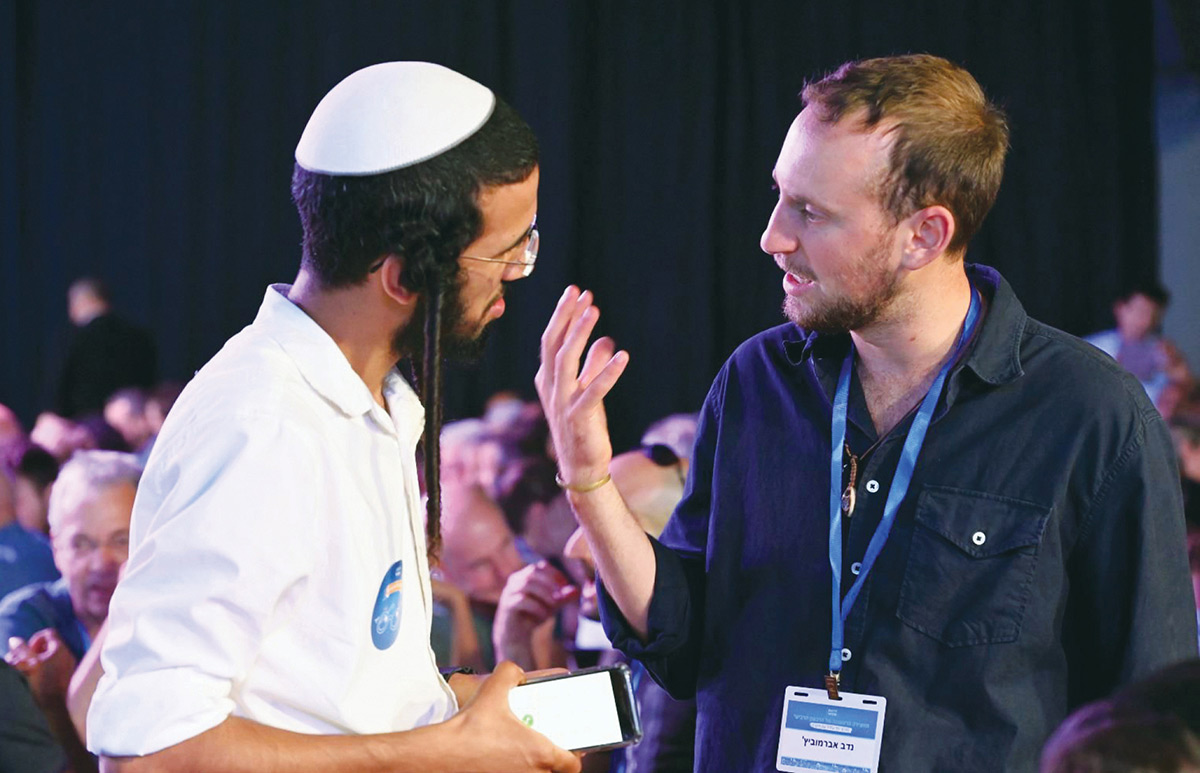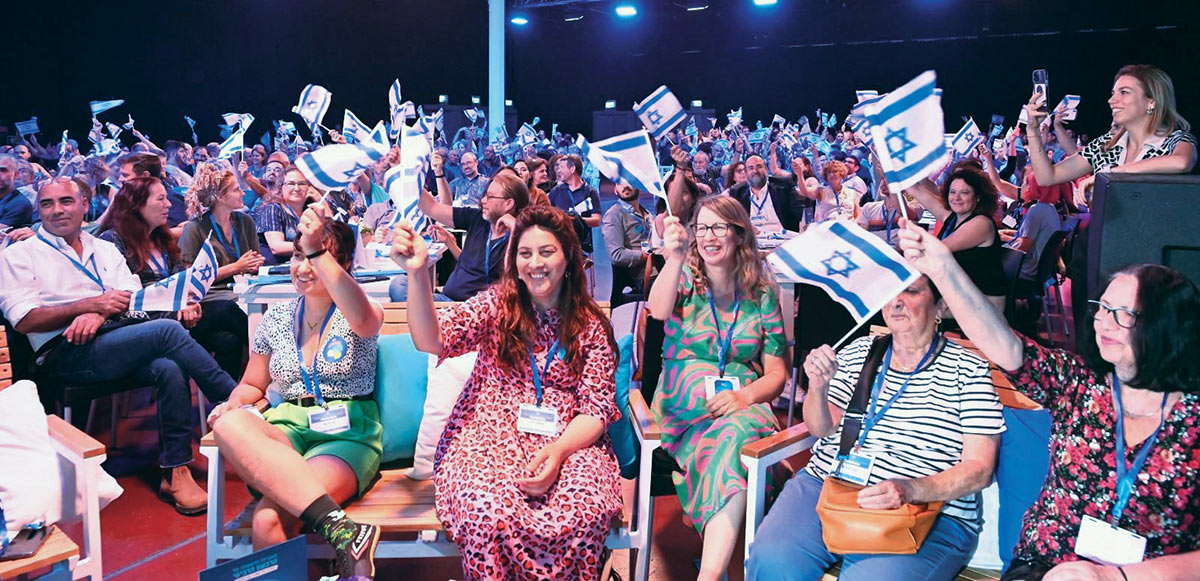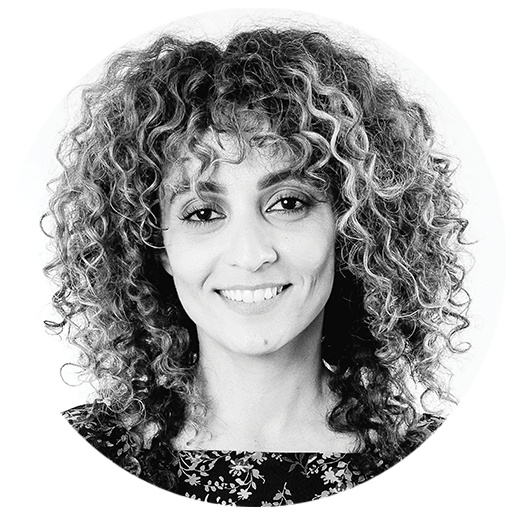Change and Courage Are Equal Partners
n early May 2023, I was invited to participate in a first-of-its-kind conference in Israel by a civilian grassroots movement named The Fourth Quarter. Unfamiliar with the group, I jumped online seeking information, and the more I discovered the more curious I became: Could this be history in the making? Are we reaching new times in Israel? Times of hope, vision, and responsible deliberation led by citizens from all sides of the spectrum?
The Fourth Quarter movement was founded to find a better solution to resolve this separation and lack of unity. They are suggesting that citizens drop the notion of waiting for our leaders to save and unite us and instead join, lead bottom-up, and be part of the solution.
It seemed this movement was attempting the impossible in a country full of tribes and conflicts as old as its history. This grassroot movement is calling on all Israeli citizens to build a strong united base that consists of all—Arabs, Jews, religious, seculars, and more. The purpose is to gain enough power to impact the way we do politics and renew the lost trust between the citizens and the country’s institutions. Sound impossible? I would remind you that women having the ability to vote was also thought impossible at one time.
One of the biggest challenges societies face when calling on people’s involvement is the faith and belief factors. In my opinion, as a society we have become cynical and pessimistic about a better future. We believe that we have no power to change the system or organize as a group to achieve big goals, even if history tells us otherwise. We excel at writing posts on social media and admiring those who led major changes that once seemed impossible, like Martin Luther King and Nelson Mandela, but we have zero belief or faith that a change as big as that can happen again. Ha!
So, I signed up with a mind full of questions and a heart full of hope. How could I not?

I suddenly realized this conference was about doing something most of us have either lost hope we can ever do or fear doing: talk, disagree, and compromise. Collectively we gathered to discuss the most painful and burning issues in Israeli society today with everyone having a seat at the table—Jews and Arabs, secular and religious, left and right, all in one room for 10 hours. Sound explosive? Or is anything possible given the right conditions? I was about to find out.
The major goal of the conference was to identify the problem Israel is facing, offer possible solutions, and ask for our involvement in helping to bring about the changes they are offering.
The first thing we did was to define the problem at hand. We started by mapping the challenges Israel is facing, such as personal and national security, the housing crisis, economic disparity, and an unbalanced voting system, amongst others. Those leading the movement pointed out that just by looking at our history, we know we can solve these complex issues.
They suggest we are facing a deeper problem: “one that is rooted in the division of Israeli society into sub-tribes that take away our X-factor: our ability to work together on common goals. We are losing our ability to collaborate, and the reason for that is trust.”
Dr. Yoav Heller, a leader of the movement, breaks down trust as the ability of citizens to attribute good faith to one another; what he means by that is that we don’t see beyond our differences and are thus unable to come to broad agreements. Either you think like me, or you are a monster out to destroy me. “We are trapped in our own eco box—a place where all we can hear is our own opinion—playing a zero-sum game of winners and losers when each group goes for the whole pie.”
The symptoms of this? Five elections in four years, no ability to pass laws, and significant strikes and demonstrations, to name a few. Until we learn how first to trust one another and regain trust in the political system and government institutions, we will be unable to make decisions, changes, or improvements in the system. So, how will we achieve this mission? One conversation at a time. Nobody said it would be easy, but I know it’s worth trying.
As I listened to the conference leaders, I saw that politics are playing a submission game—conflicts are no longer the art of compromise; instead, they have become about winners and losers, where each group is asking for 100 percent. This zero-sum game simply doesn’t work and ultimately is not sustainable.
Holding this bold conversation responsibly is not spontaneous; it does not happen by itself and needs to be managed. It takes creating an equal playing field by establishing agreements to keep us safe and within that the freedom to act.
The organizers introduced us to new terminology, rules, and agreements to help us hold a conflicted conversation: PC out, conflict in. Instead of holding ourselves back from voicing what it is we are scared of in fear it would hurt someone, we were encouraged to speak up, be curious, and listen to one another. We could ask anything but also choose not to answer everything.
They raised hard questions like What do we worry about the most in this current situation? and Where do we recognize that we are also part of the problem? As we participants were sharing in small, guided groups, we discovered something spectacular. We found that despite our differences (and there were many), we all somehow agreed on one thing: whatever had happened in the past that had brought forward separation, hate, and lack of trust, it was not a path forward—it was not working for us. We are now willing and ready to discuss and compromise. It created the effect of moderation and relatedness, and just that by itself is an achievement.

To renew trust and reach agreements, the mechanism that will allow the different groups to do so needs to be changed. The movement is offering something way more groundbreaking, one might even say revolutionary. The offer is to change the narrative, the game and its rules, and our language. To move from the politics of submission to what they call the “politics of hospitality.” The term and lessons that all leaders can adopt was coined by a community leader in the southern city of Yeroham, David Biton. Its main principles are as follows:
- Everyone has a seat at the table – We must put the unity of Israel in the center to use as a compass when making decisions. We must stop shoving our differences in our faces and explaining to one another why we don’t belong. Just like the divorced parents who decide to put their differences aside and focus on the most burning and important question: will this be in the kids’ best interest?
- No one gets everything – To protect our unity, we must compromise. With so many different interest groups, there cannot be a situation where everyone gets everything. It’s simply impossible; thus, compromise is necessary. To reach broad agreements, everyone must give up something. We need to look hard at the things that are most important to us that we must preserve, but also ask ourselves, What is it that I am willing to give up for a better future, not just for my group but for all? It is making the shift from winning to finding solutions. It is an offer, and an interesting one, one we should explore.
- Humility – Leaders must come to the table humble. Promising your constituents things you know you can’t deliver is the main reason we find it hard to trust them in the first place, and it will leave you in a position destined to fail and disappoint. Understand your role as one who can’t control circumstances but can respond to them.
As I was talking with the different people at the conference, we recognized the impact of this polarization on our personal lives. One woman shared that she is nervous before every family gathering because she and her brother don’t “belong” to the same camp; whenever they meet, it ends up in a huge argument. Her story was one of many—stories that show how the trust crisis is now leaking into our personal space. We also recognized that increasing solidarity between citizens is a step in the right direction in solving this crisis.
As individuals, we walk around feeling like we must choose a side or a stance and then protect it with our dear lives. Even if what’s at risk is our relationships, our well-being, or our democracy. Our dichotomous view of the world has robbed us of our ability to put the conflict on the table, resolve it, and move on. It made me realize that in a complex world full of meanings, identities, ambiguity, uncertainty, and constant changes, we must gain the capacity to move from seeing the world as black and white, right or wrong, to seeing reality with all its complexities. Then, find the courage to be curious about it and open to changing and adjusting to that ever-changing reality.
It was clear to me and others in the room that our mission would not be achieved by next week. And that we may not even live to see its vision come to fruition. But as Dr. Heller said, we are not here to complete the mission but to start it. I also realized that we are making history, and I can choose what part I want to take. I am not afraid of the long road, and neither was any other great leader out there doing something big, and neither should you.
